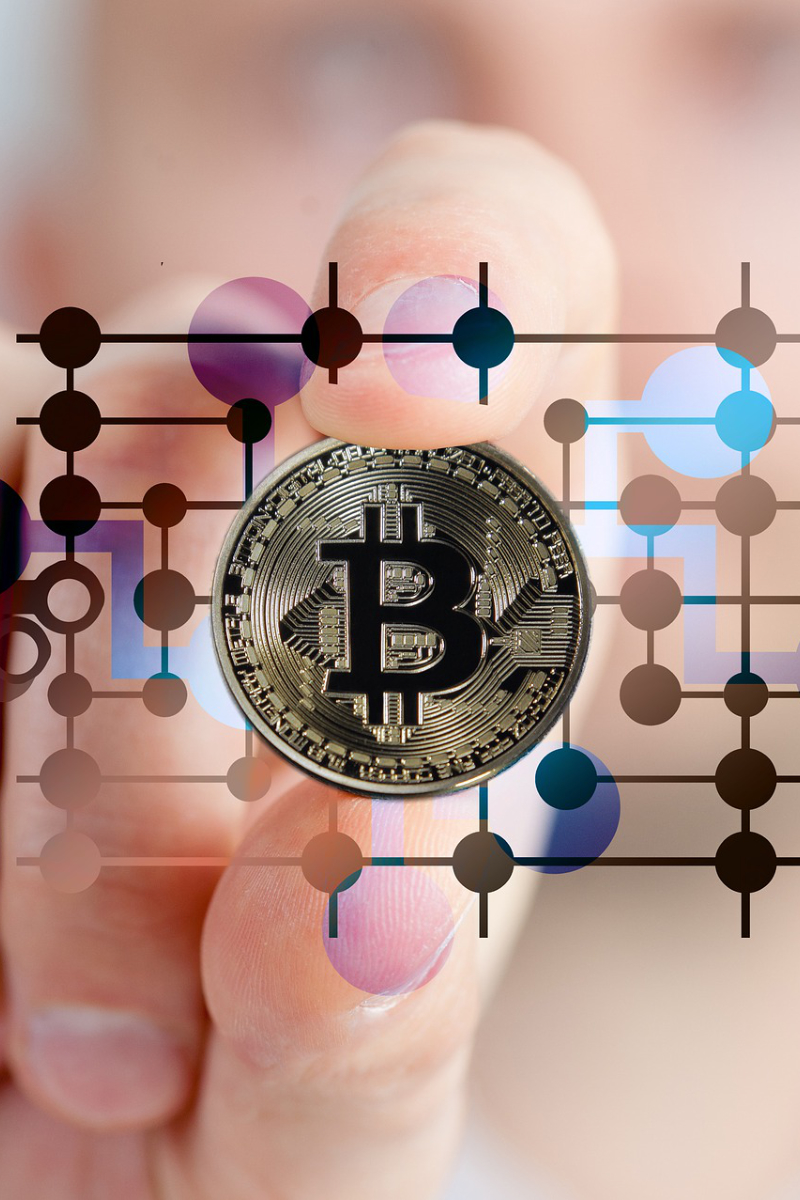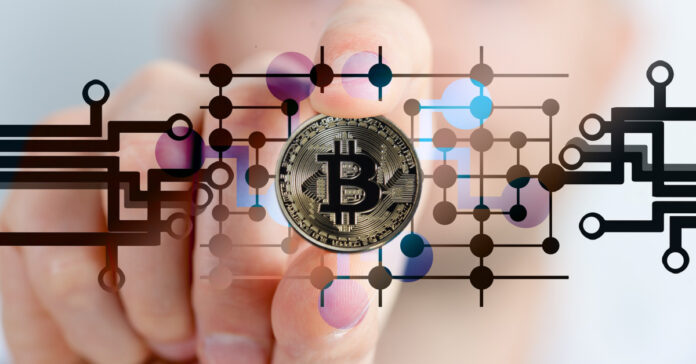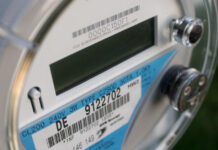As bitcoin climbs past $13,000 for the first time since 2017, it is generating some news coverage. Add to this the media coverage about different countries planning to launch their own cryptocurrency, and the question comes up: Does cryptocurrency have value to preppers?
Today, we’re going to explore the question in some detail.
Some Preliminaries
First, let me give you some background: I worked as a 1099 contractor for a cryptocurrency mining company, and I own at least five different cryptocurrencies, so I know a little bit about the industry. I have multiple wallets and have made purchases using crypto, so I have hands-on experience as well.
Second, please keep in mind that there are literally thousands of coins. (Cryptocurrencies are often called “coins” even though they are not something you can hold in your hand. They are electronic and exist only in the online world.) While they may share some properties, they are not all alike. They have different behavior, levels of security, values, costs to trade, and are traded on different platforms. Some can be mined inexpensively by individuals while others cannot. Do not assume something I say about Bitcoin applies to Neo, for example, or any other coin.
The top 10 cryptocurrencies by market capitalization are: Bitcoin, Ethereum, Tether, XRP, Bitcoin Cash, Chainlink, Binance Coin, Litecon, Polkadot, and Bitcoin SV. (Please note that while many coins may use “bitcoin” in their name, they are not linked and are managed and traded separately.)

Third, this report is intended for preppers and others who have little or no knowledge of cryptocurrency. It is an overview, not a detailed plan. If what you learn here interests you, do your own research and keep in mind that I am not a financial advisor and am not making financial recommendations. Knowledge is powerful but a little knowledge can be dangerous; use it at your own risk.
Crypto vs Dollars
I’m often going to refer to cryptocurrency as crypto. Please consider crypto and cryptocurrency to mean the same thing when used in this aricle.
Right now, I have $57 in my pocket. I can take it out and hand it to someone to buy something. Each bill is backed by the full faith of the United States government. Written on them are the words: “This note is legal tender for all debts, public and private.”
In an electronic wallet stored in my cell phone, I have $127 worth of in Ethereum. This money is not backed by any government. It is not legal tender. It can be used to buy things from my phone, but only at a limited number of places. Chances are, I can’t walk into a convenience store and buy a soda with it. I can’t pay for a meal with it at most restaurants.
When I do make a transaction using Ether, it isn’t instant, like handing someone a $20 bill or a credit card; it takes little while for the transaction to be processed and accepted. Depending on the type of cryptocurrency, this can be only 20 seconds, or it could be 20 minutes. It’s just not that convenient to use and is not supported by an infrastructure, like credit card payments are. That may change when PayPal starts using it, but how often do you use PayPal anywhere outside of eBay?
Security of Crypto vs Dollars
I can store my physical dollars in my wallet, in my gun safe, under my mattress, or I can bury them in my back yard. When I get a bunch of cash, I can also deposit them into a bank account, where they become electronic dollars.
I can also store my cryptocurrency multiple ways: In a hardware wallet, in a software wallet, in an online wallet, or in an offline wallet.
If I lose my wallet or someone steals my paper dollar bills, that money is gone. If my hard drive or phone crashes, I’m in trouble. I can recover my wallet and my crypto only if I know the seed words and password. (I keep the seed words handwritten on paper in my safe deposit box .) If I lose those seed words, chances are no one will ever be able to access those specific funds again.
Unfortunately, the cryptocurrency industry has a record of many “hacks” that have resulted in the loss of millions of dollars’ worth of cryptocurrency. Some wallets are more susceptible to hacking and loss than hardware wallets that you personally control. Wallets controlled by third parties or store online are the riskiest.
Millions in cryptocurrency have been lost or and cannot be recovered because people failed to keep good records. From this perspective, the traditional dollar-based financial system is much safer for the vast majority of users.
Fractional Crypto vs Dollars and Cents
Just like you can divide dollars into quarters, dimes, nickels and pennies, cryptocurrencies can be traded fractionally, but instead of calculating down to the nearest penny, or 100th, it can be calculated down to the nearest millionth. When you consider that one bitcoin could buy a decent used car, you can understand why you need something smaller than 1/100th of a Bitcoin. For instance, I have a transaction in one of my wallets that is for 0.01365835 of a coin. If you deal with cryptocurrency, you are going to need to think beyond two decimals. But on the positive side of things, your computer will handle all of this calculation for you. No more trying to figure out the best combination of change to give someone 43 cents in change.
This is made possible only because cryptocurrencies are electronic, not physical. There is actual coin or note that you can hold. The phrase “two bits” meaning a quarter came about because the silver coin worth eight reales minted in New Spain or Mexico and known and made famous centuries later by pirate movies, could be cut into 8 pieces to make change. A cryptocurrency “coin” can be sliced much finer — into millionths instead of eighths.
Taxes and Crypto vs Dollars
When you make a cash transaction, no one knows. Whether you pump quarters into the washer and dryer at the laundromat, or leave a $20 bill to cover a $15 lunch, no one knows whether the laundromat, your server, or the lunch place actually reports that cash as income to the IRS. We assume they do, and it is getting tougher and tougher to hide cash transactions from Big Brothers eagle eye, but I am sure some cash transactions still go unreported.
With crypto, you are supposed to track and report all transactions so you can pay taxes on them. Just like buying and selling a stock or mutual funds, you are supposed to pay taxes on any increases in value between when you acquired a coin and when you sold or spent it. Just as brokers have to submit 1099s for any interest, dividends, capital gains, or other income you earn on a mutual fund or ETF, there are also reporting requirements for crypto, so don’t assume you can get away without paying taxes.
Cryptocurrency for Privacy
If you hand a panhandler $5 or pay a sex worker $500 in cash, no one knows but you two. With many cryptocurrencies, every transaction you make is part of a public record, called the blockchain, which anyone can see. It may be difficult to associate your identity with the digital address of your wallet, but governments and private individuals who want to trace those transactions can usually do so if they wish to invest enough time and resources.
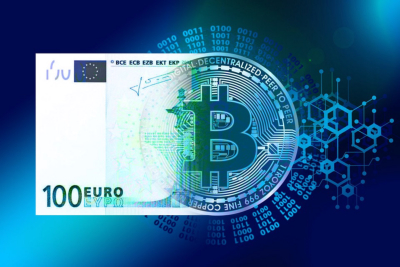
That means most coins do not offer you total privacy. However, there are some cryptocurrencies, known as privacy coins that offer far better privacy by obscuring your transactions. The top three privacy coins are Monero, Zcash and Dash. You will notice that they are not on the top 10 list.
Crypto vs Investment Vehicles
Just as there are people who buy and hold stocks while others trade them regularly, there are people who buy and hold crypto and others who trade them, trying to buy low and sell high. There are certainly some similarities between how crypto and stock are traded, but one big difference is how you calculate value.
A smart investor can look at a company, look at their sales and their balance sheet, examine the sector or industry they are in, compare them to the competition, and determine whether or not they think the company stock is undervalued. They can then decide to invest in it and, for example, buy the company’s stock a $15 per share. When it reaches $18, they will re-evaluate and see if they should sell and take a 20 percent gain or determine if it has farther to go and hold on to it.
With cryptocurrencies, there are no similar criteria to look at and the price is driven largely by demand and public relations or buzz. There are no assets, no inventory, no sales reports, not PE ratio, etc. In my opinion, investing in cryptocurrency is more of a gamble than an investment because there are no underlying assets that have any value. I consider it more risky because it is not governed by the rules that apply to stocks and stock brokers. Of course, you could argue that without risk, there is no reward. I would suggest you don’t bet the mortgage on crypto because there is no sure thing. Just take a look at the Bitcoin performance over its history since 2017 to see what I mean. Up and down.
Crypto vs Gold and Silver
Some have compared cryptocurrencies, and especially BitCoin, to gold because its value fluctuates, often the opposite direction of the dollar. It is not at all unusual to read a financial news story and see that, “The dollar was up today while gold dropped to X and Bitcoin was down to Y.”
Before you put crypto to precious metals in the same basket, please note that precious metals have been used as money for centuries and have had value since before the time of Christ’s birth; Bitcoin has no such track record. Gold has outlasted kings, countries, and many other currencies. Cryptocurrency is still new and largely untested. We have no idea if it has any real staying power.
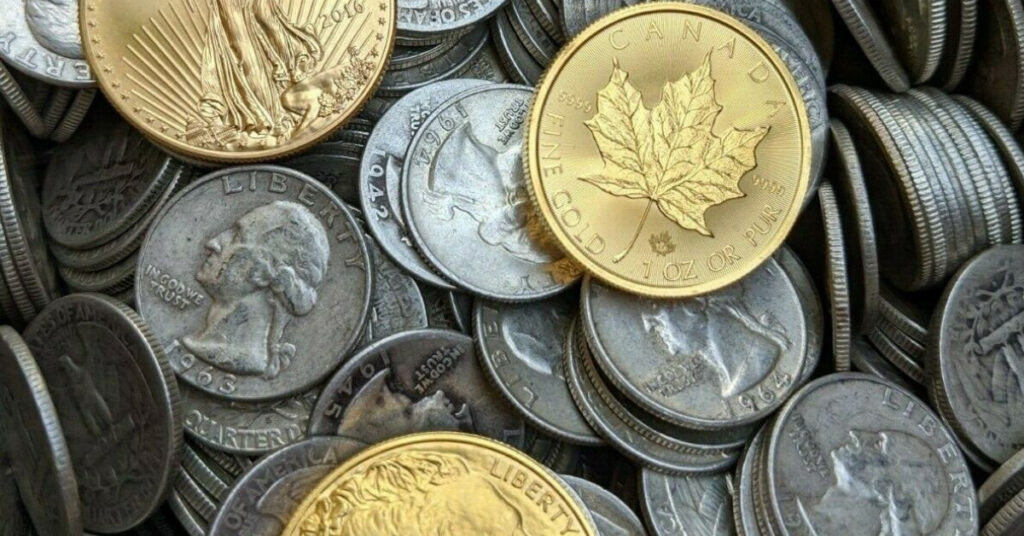
In my mind, the biggest weakness of cryptocurrency, and one way in which it is exactly the opposite of gold, is that when the electricity goes out, you cannot access your coins. You need both electricity and a live Internet connection to do anything with your cryptocurrency. Without power, you cannot trade it, make a purchase, or convert it into dollars. While this is also the case with most investment vehicles, it is not the case with gold or silver. Your physical gold and silver does not disappear when the lights go out.
Government-sponsored Crypto
I have a real problem with government-sponsored cryptocurrency. I have no doubt China is trying to launch their own digital currency because it allows them to track every single transaction and monitor both the flow of money and the places where it pools up, reflecting wealth that can be taxed or seized.
Right now, the government knows how much money you make because your employer reports it to them. They don’t know where you store your money or how you spend it. (Although the banks and credit card companies may.) By using a government-sponsored cryptocurrency, the government will know where every dollar you have came from, how long you held on to it, and where it goes.
The Fourth Amendment gives us protection against unreasonable searches. You have to be suspected of doing something wrong before the government can look into your finances. If you use a government sponsored cryptocurrency, they would have complete transparency on everything related to your finances, no warrant required.
The Future of Cryptocurrency
Cryptocurrency is the app that demonstrates the value proposition of blockchain technology. (I’m not going to try to explain blockchain other than to tell you it makes cryptocurrency possible just like private and public keys make end-to-end encryption possible. Google it or see this entry in Wikipedia if you are interested in knowing more.) Just take my word for it that the Bitcoin blockchain creates a public record of every transaction ever made with every fraction of a bitcoin, and that record cannot by changed, fudged, spoofed, or erased.

I suspect the blockchain is going to be with us for many years. Like any tool, it can be used for good or bad. It will be used to manage and track inventory. That sounds great, until you realize it could potentially be used to track every bullet sold, every time it is sold, re-sold, or shot. It can also be used for tracking people. Some would consider that might make it the mark of the beast.
The blockchain is being used by cryptocurrency to create a trustworthy, verifiable mechanism to track coins and verify ownership. In the future, it could be used to track all of us and everything we do, every minute of every day. That in turn could be used in a very 1984 way to allow the government to tell you that you are consuming more than your share of resources, or you are driving too fast, or getting too fat, or playing too many video games, or hanging out with the wrong crowd, in which case they could automatically assess fines and confiscate some of your crypto. In other words, the blockchain would allow government tracking far and beyond the Chinese social score.
Crypto for Preppers
Now that you know a little about cryptocurrency, we get to answer the big question: Should the prepper buy and hold cryptocurrency as part of their preps?
In my opinion, no. First, because it will have no value in a SHTF situation in which the electrical grid is down. Food will have value. Hand tools will have value. Gold and silver may have value for trade. Those stock in your 401k will be unusable, as will your cryptocurrency.
Second, because it is accepted in very few locations. Using crypto in most places is slow, inconvenient, and carries a surcharge. There is not enough infrastructure to support frequent use.
Third, because it requires a fairly high level of technology to support and has many pitfalls, including that it can be hacked and it can lock you out from your own money. It also has extensive record keeping requirements.
If you change the question and ask, does cryptocurrency have any use for preppers? Then I would give a qualified yes, in a few cases. The added privacy aspects of certain coins, like Monero, might allow you to purchase items like a gun, ammo, or even long term storage food in a way that would be impossible to trace the payment back to you. However, other mechanisms exist for tracking the sale, including how the item is delivered to you. In the case of a gun, you still need to fill out the paperwork and get a background check.
In a Big Brother world, a privacy could be useful. Or in a world where buying something frowned upon by society could hurt your reputation and cost you your job, paying with a privacy coin might make sense.
Adding Crypto to Your Preps
If you want to add crypto to your preps, do it when you are well along in your prepper journey. You should have food, water, supplies, a place to bug out to, guns and ammo, and pretty much everything else you need to survive for a couple years before you waste any money on crypto currency. Even then, I would buy junk silver and other precious metals before I invested in crypto.
Also, my advice is to stay as far away from government sponsored crypto as possible.
The only reason I have any cryptocurrency is because I was paid in it at a time it was appreciating. Unfortunately, it plunged later. I consider it part of my emergency fund for financial disasters, not part of my prepping supplies.
If you enjoyed this article, we recommend you read Precious Metals for Preppers and Alternative Payment Methods for SHTF or to Avoid Inflation. You might also like Bitcoin or Gold and Silver – Which is Better for Preppers?.
All images courtesy of pixabay.com
